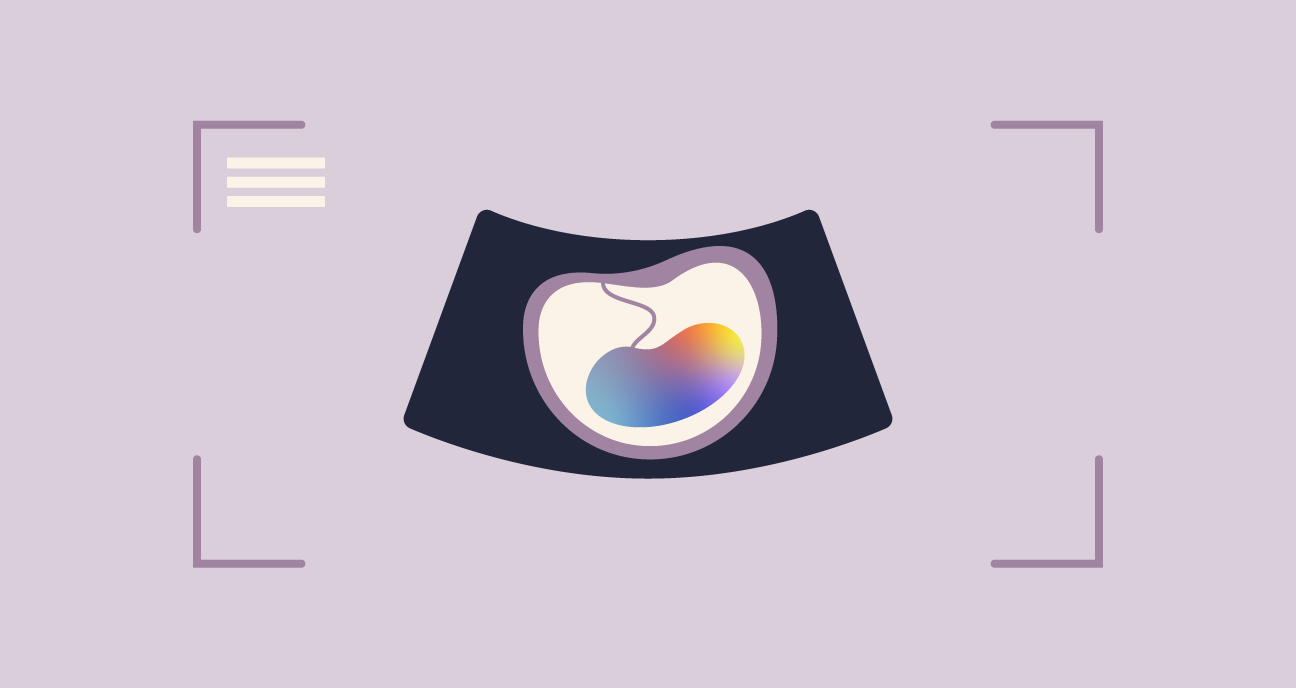IVF Pregnancy: What to Expect

Medically reviewed by Linda Streety, RN, BSN
Pregnancy is the very much wanted outcome of in vitro fertilization (IVF). If you have just gotten positive pregnancy news after IVF, congratulations! Celebration is in order, as well as preparation for your journey through pregnancy, which will have some key differences from people experiencing an unassisted pregnancy.
Below, we’ll let you know how soon you can take a pregnancy test, what you need to know about your hCG levels, how soon you can consider your pregnancy safe, and how to calculate your due date.
Six Second Snapshot
-
It’s important to wait 7-14 days after your embryo transfer to take a beta hCG blood test at your clinic to confirm pregnancy.
-
In most cases, you will remain in the care of your fertility clinic for about 7-10 weeks after embryo transfer and a positive pregnancy test.
-
The exact level of your hCG is less important than whether it’s steadily increasing – ideally doubling roughly every 48-72 hours.
How soon can I take a pregnancy test after embryo transfer?
If you’ve just undergone embryo transfer, you are probably understandably anxious to take a pregnancy test to see if the procedure worked. However, you should wait until your clinician conducts a beta hCG blood test (the commonly used IVF pregnancy test), which provides the most accurate results. Depending on your clinic, this will occur 7-14 days after your embryo transfer. This is because levels of human chorionic gonadotropin (hCG) – a hormone produced by the cells that form the placenta – can be undetectable during the earliest days of pregnancy. As a result, you may get a false negative result if you take a pregnancy test too soon.
Waiting to go to the doctor is especially important if you had an hCG trigger shot after ovarian stimulation, and went on to do a fresh embryo transfer. Because the hCG from the shot can take a while to leave your body, you may get a false positive result.
As part of your embryo transfer process, you may be taking supplemental progesterone to help support the early months of a pregnancy. Because the symptoms of progesterone supplementation – vomiting, exhaustion, and breast tenderness – can mimic the symptoms of early pregnancy, the way you physically feel can be misleading. As hard as it is to wait, this is another reason to trust your clinician’s timeline and wait for an hCG blood test to confirm a pregnancy.
How long will I remain in the care of my fertility clinic?
In most cases, your reproductive endocrinologist (RE) and fertility care team will continue to monitor your pregnancy for about 7-10 weeks after embryo transfer and a positive pregnancy test. They will be checking on your:
- hCG levels - After a positive beta hCG blood test to confirm a pregnancy, your RE will be checking to make sure your hCG levels are steadily increasing. This lets them know that your pregnancy is progressing!
- Progesterone levels - If you began progesterone supplementation before embryo transfer to help develop your endometrium and support your pregnancy in its earliest stages, you will continue taking progesterone during the first 8-10 weeks of your pregnancy.
- Fetal growth - Your RE will likely conduct ultrasounds to ensure that the embryo has implanted in your uterus and is developing normally. These may begin as soon as 2-3 weeks after embryo transfer.
Your fertility clinic will let you know when you can transfer your care to your OB/GYN and/or midwife, who will monitor the rest of your pregnancy and birth!
What’s a good hCG level during an IVF pregnancy?
A study published in Human Reproduction in 2002 found that the average hCG level for a viable pregnancy was 126 mIU/ml 12 days after embryo transfer, with an hCG value of 76 mIU/ml as the cut-off point to predict a viable pregnancy (1). However, if you have a low hCG during the early days of your pregnancy, that doesn’t mean that your pregnancy will not continue. A 2020 study in the Journal of Ovarian Research found that among patients with a beta hCG of 55-100 mIU/ml 14 days after a frozen embryo transfer, 7.7% went on to have a live birth (2).
The exact level of your hCG is less important than whether it’s steadily increasing – ideally doubling roughly every 48-72 hours – which is why your RE may ask you to come in for another blood test several days after your first.
After how many weeks is an IVF pregnancy considered safe?
As wonderful as it is to receive news of a pregnancy during IVF, you may also be wondering about your risk of miscarriage. A 2003 review of IVF/ICSI pregnancies published in Human Reproduction found that 21.7% of singleton pregnancies ended in a miscarriage (3). It’s hard to know how this compares to an unassisted pregnancy because unassisted pregnancies can end before someone even knows they are pregnant. However, with confirmed unassisted pregnancies, the rate of miscarriage appears to be about 10-20%.
Your risk of miscarriage can also depend on your reasons for seeking IVF.
-
If you are above 35 years of age, there’s a greater risk of chromosomal abnormalities in the embryo which may cause miscarriage (PGT testing before embryo transfer can reduce the risk of miscarriage by ensuring that you only transfer chromosomally normal embryos).
-
If you sought IVF because of an issue with implantation – for example, a problem with endometrial receptivity or an abnormal uterus – you may have a higher risk of miscarriage.
Because IVF technology has advanced in recent years, especially in the cryopreservation of eggs and embryos, most clinicians now transfer only one embryo per embryo transfer. This has made pregnancy safer for both parents and babies, since pregnancies with multiples carry a greater risk of complications.
After the first trimester, 12 weeks into your pregnancy, the chance of a successful pregnancy is generally about the same for an IVF pregnancy as an unassisted pregnancy.
When should I tell people I’m pregnant?
This really depends on what you are most comfortable with. Since every IVF cycle is so intensive, you may be already getting support from your loved ones throughout your fertility treatment process. If this is the case, you may want to lean on them through anxiety of waiting for your pregnancy test results, and remain in touch through the first early weeks of your pregnancy.
If you prefer to wait until the risk of miscarriage is low, that is also completely understandable! Again, the best time to tell people really depends on your comfort level. Since the risk of miscarriage is generally about the same as with an unassisted pregnancy after 12 weeks, you may prefer to share your good news then.
How do I calculate my due date?
Full term pregnancies last about 40 weeks. However, your due date generally isn’t calculated from the moment you get pregnant, but from the first day of your last period. Since menstrual cycles vary greatly in length, it means that due dates during an unassisted pregnancy can be somewhat inaccurate.
However, during IVF, because you will know the exact date of your embryo transfer and how many days your embryos developed before transfer, your estimated due date after IVF will actually be more accurate! There are several due date calculators online that you can use that make it easy to estimate your due date. We especially like this one.
Recent Articles
References
-
Poikkeus, P., et al. “Serum HCG 12 Days after Embryo Transfer in Predicting Pregnancy Outcome.” Human Reproduction, vol. 17, no. 7, 1 July 2002, pp. 1901–1905, https://doi.org/10.1093/humrep/17.7.1901. Accessed 12 May 2020.
-
Wu, Yixuan, and Haiying Liu. “Possibility of Live Birth in Patients with Low Serum β-HCG 14 Days after Blastocyst Transfer.” Journal of Ovarian Research, vol. 13, no. 1, 12 Nov. 2020, https://doi.org/10.1186/s13048-020-00732-6.
-
Tummers, P. “Risk of Spontaneous Abortion in Singleton and Twin Pregnancies after IVF/ICSI.” Human Reproduction, vol. 18, no. 8, 1 Aug. 2003, pp. 1720–1723, https://doi.org/10.1093/humrep/deg308.
Share this
Recent Articles

Learn everything you need to know about IVF
Join the newsletter for IVF education, updates on new research, and early access to Alife products.



